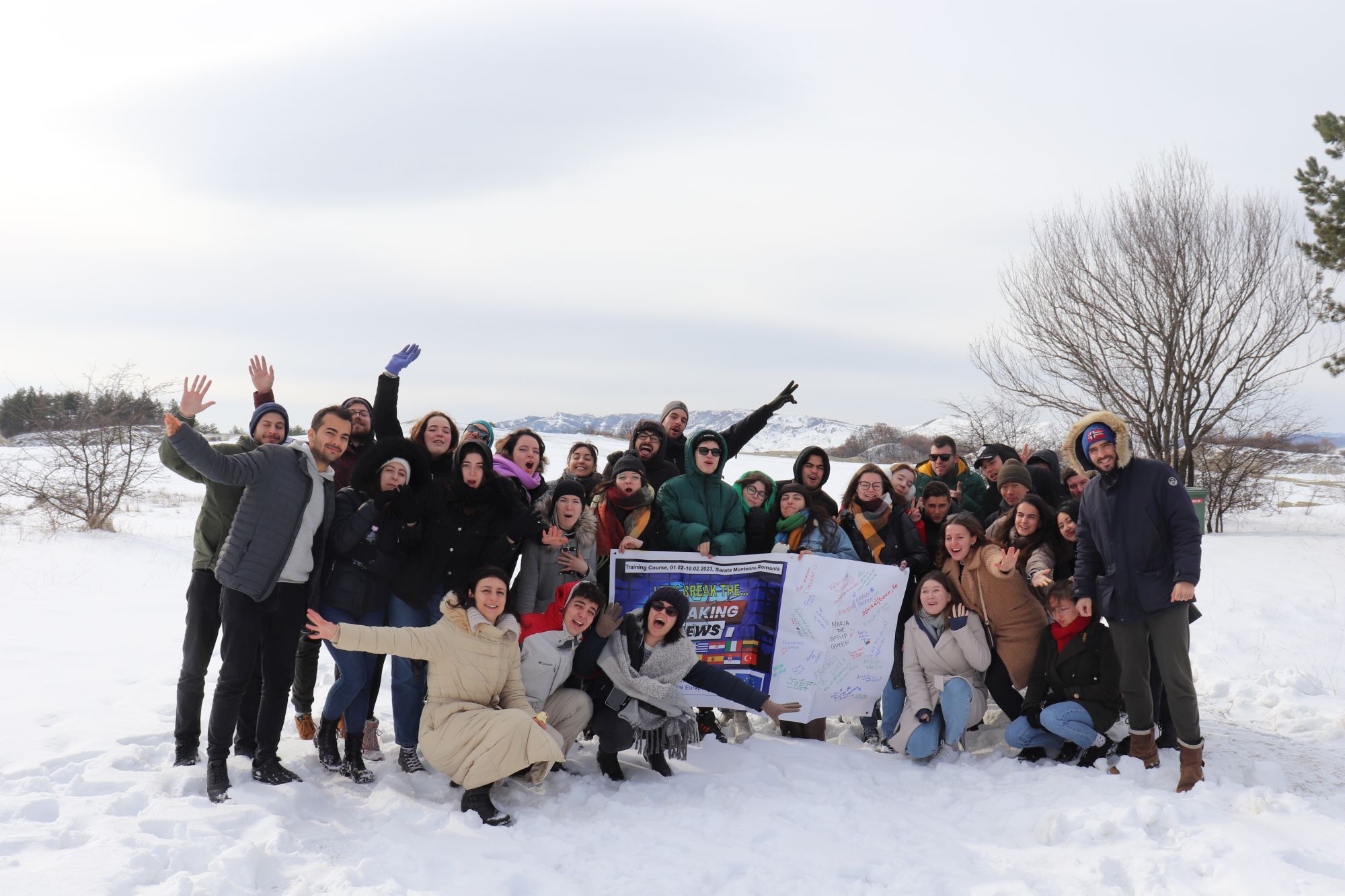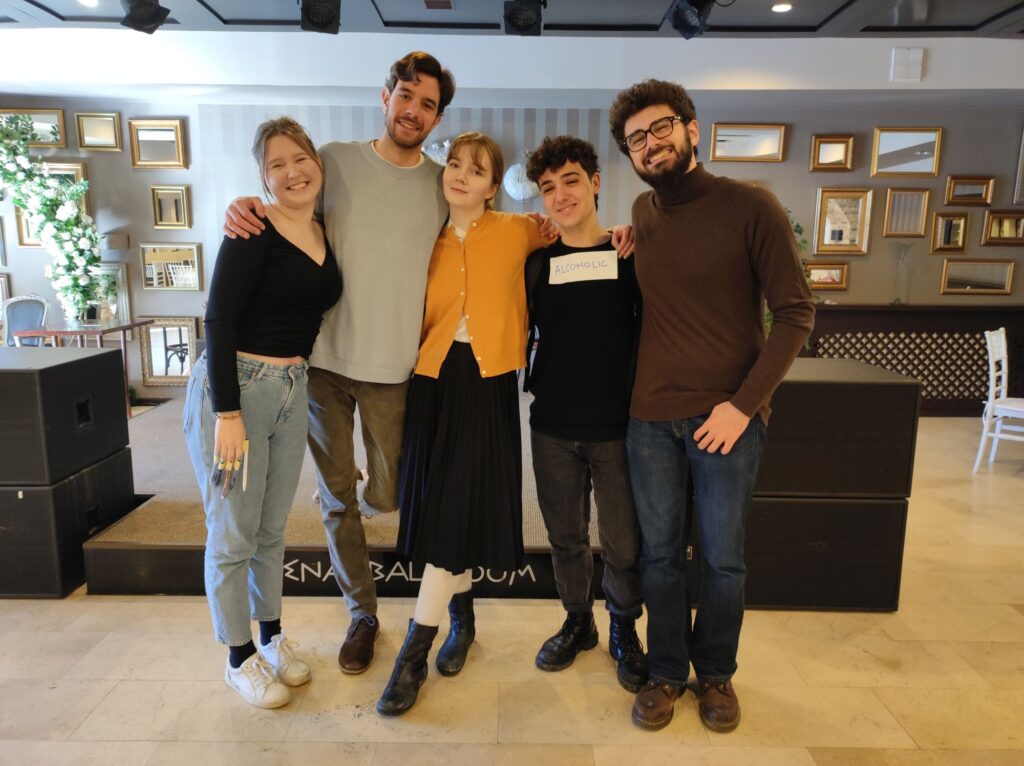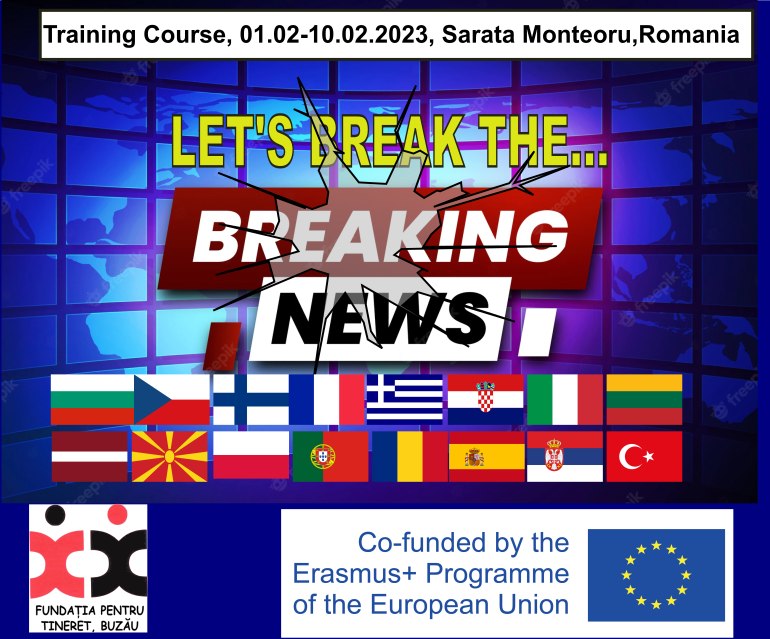In today’s world, we are constantly bombarded with information from various sources, making it increasingly challenging to discern fact from fiction. The rise of fake news and the prevalence of logical fallacies have only compounded this issue, underscoring the need for critical thinking skills that enable us to navigate this complex landscape effectively.
As a participant in the training course “Let’s break the breaking news” organized by “Fundatia Pentru Tineret Buzau, Romania”, coordinator and trainer Tolea Postovei, during the period from 01.02.2023 to 10.02.2023 I represented Volunteers Centre Skopje on the topic of fake news and logical fallacies. While attending the course we were embarking on an important journey of learning and personal growth.
One of the primary goals of this training course that took place in Sarata Monteoru and Buzau, Romania was to provide us with a thorough understanding of what constitutes fake news and how to identify it. Fake news can take many forms, ranging from outright lies and fabrications to misinformation that is presented in a way that is deliberately misleading. By learning how to recognize these different forms of fake news, we were able to be better equipped to separate fact from fiction and make informed decisions based on accurate information.
In addition to fake news, logical fallacies are another important topic that was covered in this training course. A logical fallacy is a flawed argument that is presented in a way that is meant to deceive or mislead the listener. These fallacies can take many forms, such as ad hominem attacks, straw man arguments, and false dichotomies, among others. All these fallacies were thoroughly discussed in this training course. By learning to recognize these fallacies, I am now able to evaluate arguments and make more informed decisions based on sound reasoning.
It’s worth noting that this training course is not just about identifying fake news and logical fallacies, but also about developing a more nuanced understanding of how information is presented and consumed. In today’s digital age, information is disseminated at an unprecedented pace, and it can be challenging to keep up with the sheer volume of information that is available. I was part of the video editing team and acting staff, where we took on a challenge of how TikTok could be combined with an Influencer and produce horrible fake misinformation about reality. By gaining a better understanding of how information is presented and consumed, we were better equipped to navigate this landscape and make informed decisions based on accurate information.
In conclusion, participating in a 10-day training course on the topic of fake news and logical fallacies is a valuable opportunity to develop critical thinking skills that will serve me well in all areas of my life. By learning how to identify fake news and logical fallacies, and by gaining a better understanding of how information is presented and consumed, I will become a more discerning and informed citizen for my community, better equipped to navigate the complex and ever-changing landscape of information in the 21st century and help wherever I can to clear up any misconceptions I regard as necessary.
Betim Ibraimi



